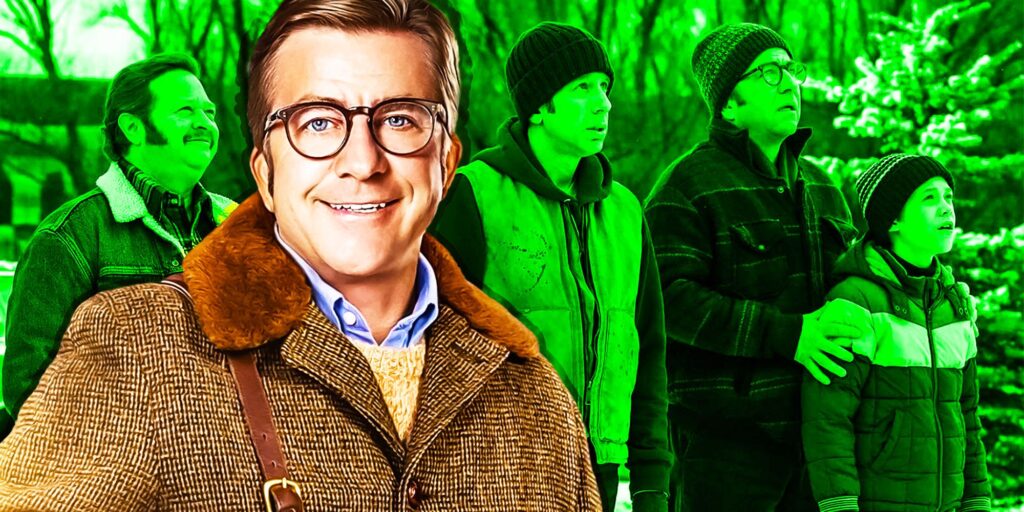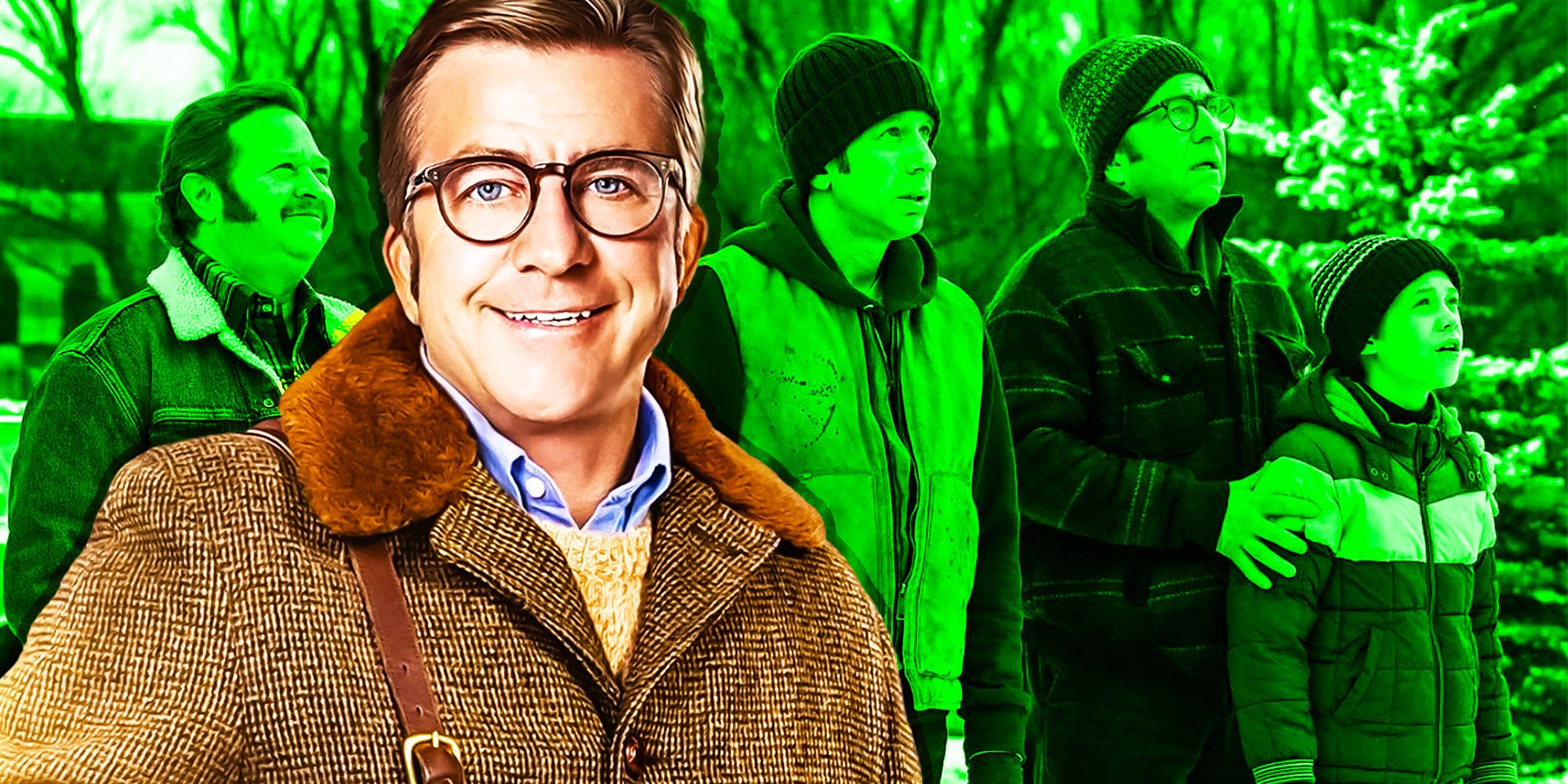
Unveiling the Author of The Christmas Story: More Than Just Dickens
When discussing the quintessential Christmas story, Charles Dickens’ “A Christmas Carol” often springs to mind. But the phrase “author of the Christmas story” encompasses a broader spectrum of narratives and creators who have shaped our understanding and celebration of the holiday. This article delves into the various authors of the Christmas story, exploring their contributions and impact on the festive season as we know it.
The Indelible Mark of Charles Dickens
It’s impossible to discuss the author of the Christmas story without acknowledging Charles Dickens. His 1843 novella, “A Christmas Carol,” revitalized Christmas traditions in Victorian England. Dickens didn’t invent Christmas, but he redefined it. The story of Ebenezer Scrooge, Bob Cratchit, and the Ghosts of Christmas Past, Present, and Yet to Come resonated deeply with a society grappling with industrialization and social inequality. Dickens masterfully wove a tale of redemption, generosity, and the importance of human connection during the holiday season. The book’s immediate success and enduring popularity cemented Dickens’ place as a key author of the Christmas story. [See also: Dickens’ Social Commentary in A Christmas Carol]
Dickens’ influence extended beyond the immediate impact of “A Christmas Carol.” He continued to write Christmas-themed stories annually, further solidifying his reputation as the preeminent author of the Christmas story. These included “The Chimes,” “The Cricket on the Hearth,” “The Battle of Life,” and “The Haunted Man and the Ghost’s Bargain.” While none achieved the same iconic status as “A Christmas Carol,” they all contributed to the Victorian Christmas revival and reinforced the themes of family, charity, and goodwill.
Beyond Dickens: Other Literary Contributors
While Dickens is arguably the most famous author of the Christmas story, numerous other writers have contributed to the rich tapestry of Christmas literature. These authors have explored various facets of the holiday, from its religious origins to its secular celebrations. Here are a few notable examples:
Clement Clarke Moore: The Night Before Christmas
Clement Clarke Moore’s poem, “A Visit from St. Nicholas,” more commonly known as “The Night Before Christmas,” is perhaps the most recognizable Christmas poem ever written. First published anonymously in 1823, the poem established many of the modern-day images of Santa Claus, including his reindeer-pulled sleigh, his jolly demeanor, and his habit of entering homes through the chimney. Moore, therefore, deserves recognition as an author of the Christmas story, albeit in poetic form. His contribution shaped the popular image of Santa and greatly influenced Christmas traditions around the world. [See also: The Evolution of Santa Claus]
Hans Christian Andersen: The Little Match Girl
In stark contrast to the joyful depictions of Moore and Dickens, Hans Christian Andersen’s “The Little Match Girl” presents a poignant and heart-wrenching Christmas story. Published in 1845, the story tells of a young, impoverished girl who freezes to death on New Year’s Eve while trying to sell matches. Andersen’s tale is a stark reminder of the social inequalities that existed during the Victorian era and serves as a powerful indictment of indifference and neglect. While not a celebratory story, it is undeniably a Christmas story and establishes Andersen as an author of the Christmas story, albeit one who offers a more somber perspective.
Louisa May Alcott: A Christmas Dream, and How It Came True
Louisa May Alcott, best known for “Little Women,” also penned several Christmas stories, including “A Christmas Dream, and How It Came True.” This heartwarming tale embodies the spirit of Christmas through themes of generosity, kindness, and the importance of family. Alcott’s work, like Dickens’, reinforces the positive values associated with the holiday, making her another significant author of the Christmas story.
The Gospels: The Original Christmas Narrative
It’s crucial to remember that the foundation of the Christmas story lies in the Gospels of Matthew and Luke in the New Testament. These texts recount the birth of Jesus Christ in Bethlehem, the visit of the shepherds, and the arrival of the Magi. While not technically “authors” in the modern sense, the evangelists Matthew and Luke are the original narrators of the Christmas story. Their accounts provide the theological and historical basis for the holiday and are essential to understanding its significance. Therefore, they are, in a sense, the ultimate author of the Christmas story. [See also: The Biblical Origins of Christmas]
Modern Authors and the Continuing Evolution of the Christmas Story
The tradition of Christmas storytelling continues to this day, with contemporary authors adding their own unique perspectives and interpretations to the holiday narrative. Authors like Chris Van Allsburg (The Polar Express) and Theodor Geisel (Dr. Seuss’ How the Grinch Stole Christmas!) have created modern classics that resonate with readers of all ages. These works explore themes of belief, redemption, and the importance of community, further enriching the Christmas literary landscape. These modern contributors are undeniably authors of the Christmas story, shaping how future generations will perceive and celebrate the holiday.
The concept of the author of the Christmas story is multifaceted. While Charles Dickens undoubtedly holds a prominent position, a diverse range of writers, from biblical evangelists to contemporary authors, have contributed to the evolution and enduring appeal of the Christmas narrative. Each author of the Christmas story, in their own unique way, has helped to shape our understanding and celebration of this special time of year.
Understanding the contributions of each author of the Christmas story allows for a deeper appreciation of the holiday’s rich literary heritage. By exploring the works of Dickens, Moore, Andersen, Alcott, and countless others, we gain a more nuanced understanding of the themes, traditions, and values that define Christmas. These authors have not only entertained us but have also challenged us to reflect on the meaning of the season and to embrace the spirit of generosity, compassion, and goodwill.
In conclusion, the question of who is the author of the Christmas story is not a simple one. It’s a collective effort spanning centuries and encompassing diverse voices and perspectives. From the Gospels to modern children’s books, the Christmas story continues to evolve, reflecting the changing values and concerns of society. By recognizing the contributions of all these authors of the Christmas story, we can fully appreciate the richness and enduring power of this beloved holiday tradition. Remembering that the author of the Christmas story is not just one person, but a collective of storytellers keeps the spirit of Christmas alive and well.
Ultimately, each reader becomes a co-author of the Christmas story, interpreting the tales and incorporating them into their own personal celebrations and traditions. The enduring power of the Christmas story lies not only in its literary merit but also in its ability to inspire hope, joy, and connection during the holiday season. So, this Christmas, take the time to explore the works of these influential authors of the Christmas story and discover the magic and meaning that they have woven into the fabric of this cherished holiday.

